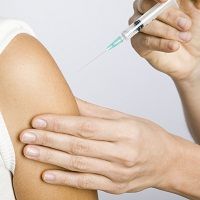The Secret to HIV Vaccines: It's All in the Timing
A single-shot vaccine against the human immunodeficiency virus (HIV) will never become a reality, according to researchers from The Rockefeller University, but stimulating the immune system may lead to improved preventive treatments.

A single-shot vaccine against the human immunodeficiency virus (HIV) will never become a reality, according to researchers from The Rockefeller University, but stimulating the immune system may lead to improved preventive treatments.
One of the challenges investigators face with HIV is that it constantly mutates, making it difficult to pinpoint. However, there are a small percentage of patients whose bodies — as a result of the disease – produce broadly neutralizing HIV-1 antibodies (bNAbs) which neutralize the virus.
“Our experiments suggest that by stimulating the immune response with tailored immunizations at specific stages, it may be possible to successfully mimic this process,” co-first author Lotta von Boehmer, MD, from the Laboratory of Molecular Immunology at the university, said in a news release.
The team analyzed mice expressing bNAbs to track the behavior. Notably, the CD4 T cells — which provide a binding site for HIV – cannot mutate. This incapability is important because it shows how the bNAbs protect the binding site and stops the virus’ attempt to take over.With this understanding, the investigators tried to draw out immune responses similar to the antibodies by administering two different antigens that stimulate B cells.
According to the study published in Cell, the first antigen by Scripps was engineered so the CD4 binding site was easily accessible and the second one from Weill Cornell resembled a natural occurrence in HIV. One set of mice had antibodies but without HIV-targeting mutations which represented early stages of the virus. The second had antibodies as well as mutations which correlated with later stages. The better antigen was dependent on the stage of the infection.
“The engineered antigen made it possible for the mice’s hybrid immune system to get the response started. However, the more natural antigen is better at fine tuning the antibodies,” said von Boehmer.
Based on these findings, providing the right antigen at the right stage of HIV is a promising strategy to boost the body’s natural immune responses to fight the virus.